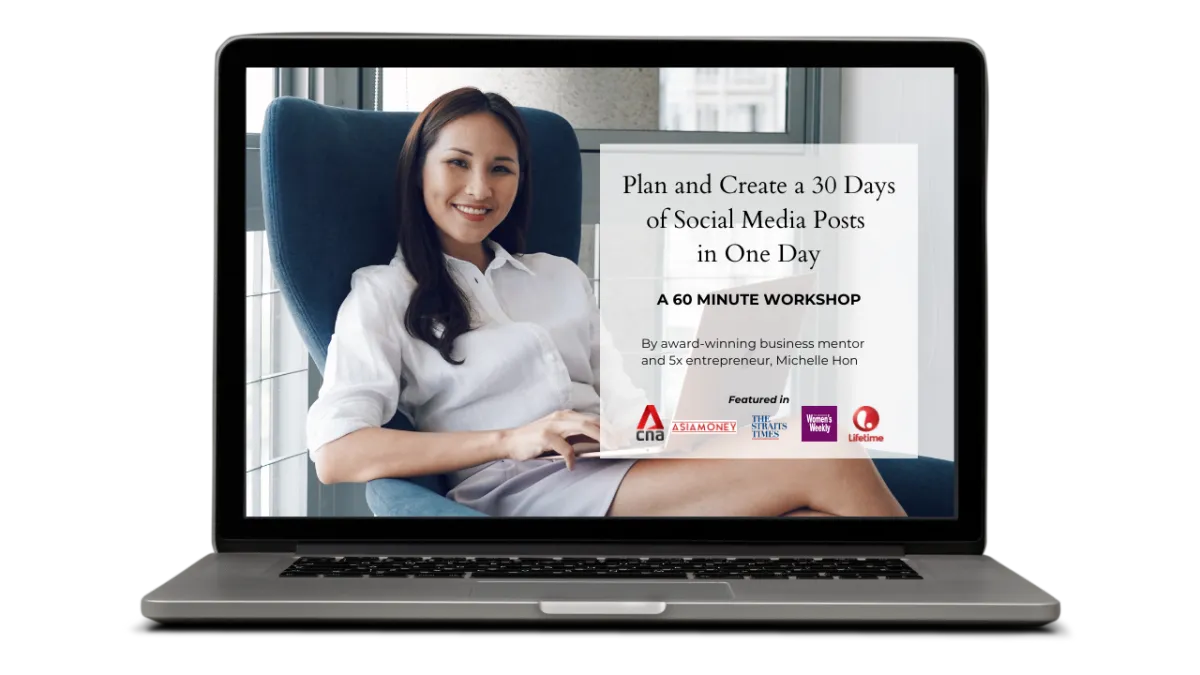Have Fun.
Build a Business.
Create a Life You Love.
There’s never been a better time to be a mom and an entrepreneur. With more tools, technology, and support at your fingertips, you don’t have to choose between family and building a meaningful business.
With the right strategy, smart automation, and a supportive community of like-minded women,
you can grow a business that aligns with your values—without burnout or sacrificing what matters most.
Build with purpose. Create your legacy. Make a difference.
Join our programs and turn your passion into a business that lasts.
3 Ways We Can Get Started Together...

Start Listening
Join me for my latest episodes, interviews and topics on what it takes to build a thriving online business and become the role model for your children.

Find Your Clarity
Stop spinning in circles. Discover what stage of business you'[re in and what you should REALLY be focusing on right now,
to grow your business.

Become In-Demand
Set up a business diagnosis call with us to determine the root causes of your stagnant business and how to improve them, so your business can flourish,
without you hustling harder.
As seen on

MomBoss Academy helps moms turn their passions into purposeful, profitable businesses—without sacrificing family time.
Our vision is to see more moms confidently building businesses that bring them joy, financial freedom, and the flexibility to live life on their terms.
Over 1500 women have worked with us through our step-by-step programs, implementing proven strategies to grow businesses that align with their values.
With the right strategy, automation, and community support, you don’t have to do it alone. Our tools—like AMPLY, our all-in-one marketing platform—help streamline growth, so you can spend less time on tech and more time on what truly matters.
We’ve also helped thousands more through our workshops, coaching sessions, and vibrant community—providing the guidance and encouragement they need to create a lasting impact for themselves and their families.

START HERE
We Only Have One Life.
Make It Count.
FREE TRAINING
Create 30 Days of Social Media Posts
in Just One Day
OUR STUDENTS GET RESULTS
Will You Be Our Next Success Story?
TOP 10 BUSINESS PODCAST FOR WOMEN ENTREPRENEURS
The Chill MomBoss Podcast
We’re all about helping you create a business that works for you — not the other way around.
Whether you’re just starting out or looking to scale, join me as we dive into practical strategies, mindset shifts, and real-life stories to help you grow a business that fits your life (not the other way around).
This is your go-to space for inspiration, motivation, and a whole lot of chill. Because you deserve to thrive—not just survive—as a mom and a boss.
👉Ready to build a business you love? Tune in now and let’s get started!
Your journey to becoming a Chill MomBoss starts here. Let’s do this! 🚀
THE LATEST

How to Crush Sales Objections and Get What You Want #123
Michelle Hon breaks down the truth about money objections, the key differences between features and benefits, and how to handle sales objections before they even come up - start closing more sales wit... ...more
Marketing & Sales
March 09, 2025•4 min read

How to Create a Brand That Stands Out and Connects with Your Audience #122
In this episode of The Chill MomBoss Show, branding expert Selvi Tanujaya shares how businesses can craft powerful identities, integrate eco-friendly practices, and create lasting customer relationshi... ...more
Business Growth
March 02, 2025•3 min read

August 2022 Income Report - $63,646.06 (Launch Report + Stats)
Curious how I make moneyfrom home In this August 2022 income report, I break down my earnings, launch stats, and key takeaways. Get insights into what worked, what didn’t, and how you can apply these ... ...more
Business Growth ,Money
March 01, 2025•5 min read
You Don’t Have To Do This Alone
Being a mom and a business owner can feel isolating, but it doesn’t have to be.
At MomBoss Academy, you’ll find a tribe of moms who understand your struggles and celebrate your wins.

It’s time to stop dreaming and start doing. Whether you’re looking to start a side hustle, grow your existing business, or simply find more balance in your life, MomBoss Academy is here to help.
Join 16,000 moms building empires from home.
Become a part of the MomBoss Revolution.
Ready to Become the MomBoss You Were Meant to Be?
Your email is 100% safe, never shared for any reason. Unsubscribe easily at any time.












